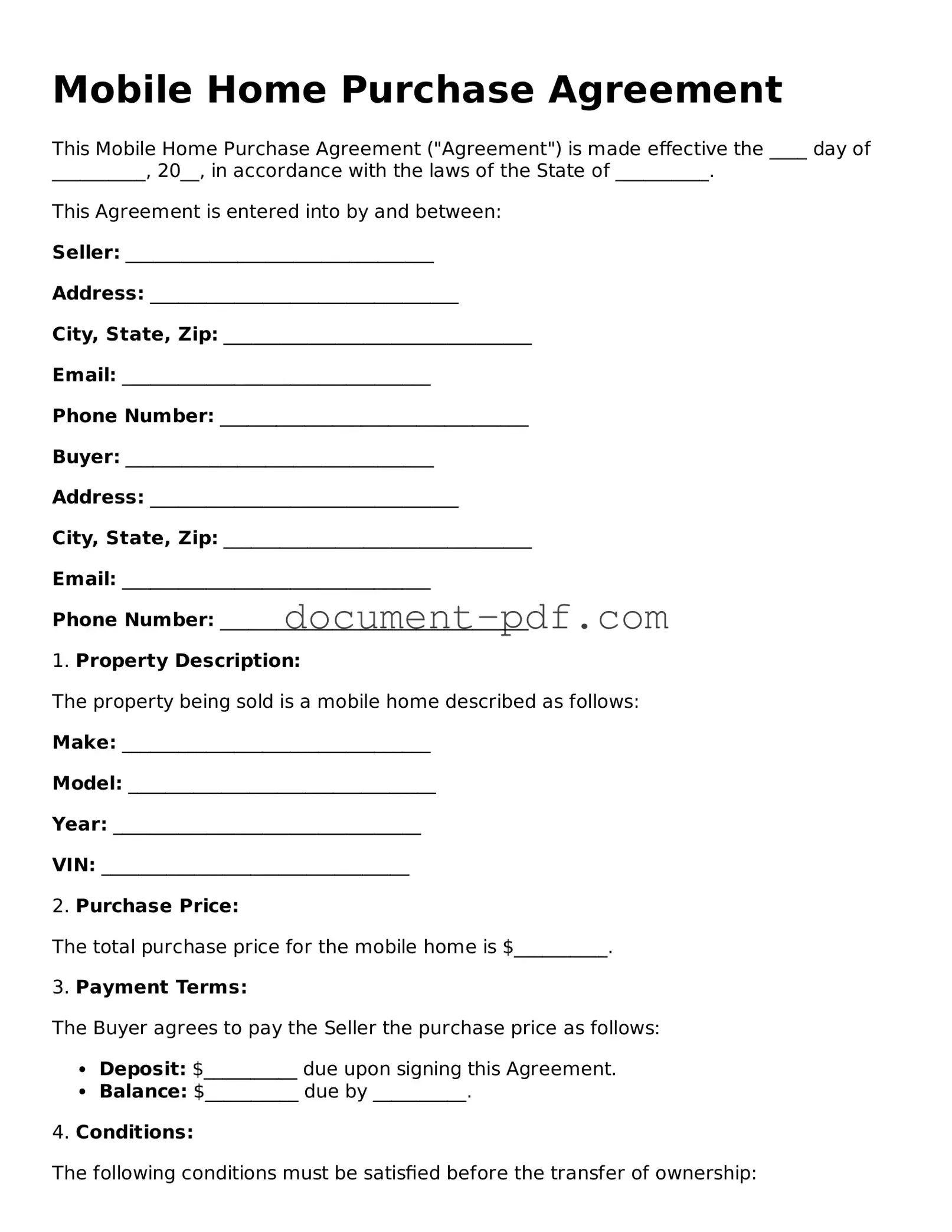Attorney-Approved Mobile Home Purchase Agreement Document
A Mobile Home Purchase Agreement is a legal document that outlines the terms and conditions for buying a mobile home. This agreement protects both the buyer and the seller by clearly stating the responsibilities of each party involved in the transaction. Understanding this form is crucial for a smooth purchase process.
Ready to take the next step? Fill out the Mobile Home Purchase Agreement form by clicking the button below.
Access Mobile Home Purchase Agreement Editor Here

Attorney-Approved Mobile Home Purchase Agreement Document
Access Mobile Home Purchase Agreement Editor Here
Finish the form without slowing down
Edit your Mobile Home Purchase Agreement online and download the finished file.
Access Mobile Home Purchase Agreement Editor Here
or
Click for PDF Form
